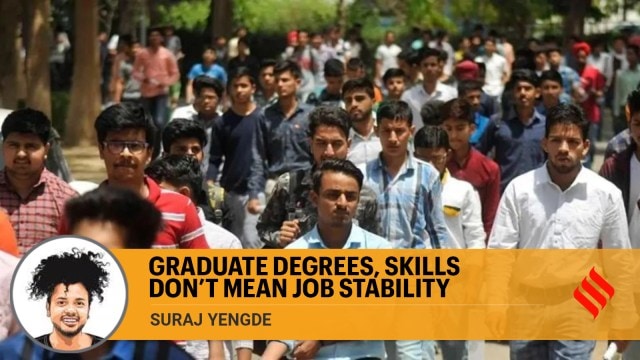
My cousin Ravi Paikrao, a talented young man from Pusad, Maharashtra, was a topper in primary and high school. He was an inspiration for all parents in the family. His name would also be used to shame those who were not doing well enough.
Ravi was also humble and would not flaunt it in our face. He would listen to you carefully and be up for cracking a joke. After high school, he pursued an engineering degree. Since he had bigger plans, he went to New Delhi to prepare for the civil services exam. Years later, calling it a “false universe”, Ravi returned to Hingoli, a drought-prone backward district in Maharashtra.
In Hingoli, he tried his hand at marketing, a job that paid him a commission-based salary. However, that didn’t work out well in the long-term. Since he was fast approaching his mid-30s, his parents got him married. A responsible family man, Ravi went to Pune to work as a network engineer.
Despite a salary package of over Rs 3 lakh per year, he only manages to take home Rs 15,000 per month. The rest goes into his provident fund and other charges. The numbers don’t add up. Ravi said a recruitment company that placed him as a contractual employee with his current firm takes a slice of his salary as commission.
Motivated by the PM’s promises in 2014, Ravi voted for Narendra Modi. He recalls the speech where Modi promised to end the contract labour system. But multiple states moved to amend the rules under the Contract Labour (Regulation & Abolition) Act, 1970 in 2018, allowing contracting across industries. This was rationalised as a move to generate employment and provide steady growth to India’s economy by allowing firms to hire or fire labourers as they saw fit. After the termination of their contract, workers are not entitled to notice pay. The government was desperate to improve the rate of unemployment.
This government does not understand the relationship between basic poverty and unemployment. If unemployment keeps spiralling you down into poverty, the contract labour system keeps workers engaged in professions that reproduce poverty and not out of it.
Ravi’s salary is the same as that of graduates. Despite being an engineer, he cannot spend additional money on taking his wife out for leisure or on vacations. He cannot do more than merely pay rent and put the food on the table. He worries about not being able to help his parents financially in their old age. Living paycheck to paycheck, his job is not a guarantee for self-sufficiency.
He blames underdevelopment in Marathwada region. Every graduate from his district and Nanded usually wants to go to Mumbai or Pune but resources in these hostile, distant places are saturated.
A student leader from Hyderabad university, Sreerag, whom I had mentored, got a scholarship and went to study in London. He returned home after completing his degree but messages me every month to enquire about job opportunities. He has a job with a political consultancy, earning nearly Rs 60,000-75,000 per month. However, the uncertainty of working in a field such as his has made him vulnerable. He cannot buy a house or join the stream of regular work life.
He was awarded a supportive Government of Kerala scholarship to study abroad but the money paid towards fees and living expenses weren’t enough. So he had to take out a loan that he is struggling to repay. Sreerag’s experience is mirrored by others like him, who have to keep looking for jobs despite their flashy degrees from abroad. He said to me even IITians work with him on meagre salaries. Sreerag is now considering leaving India for employment opportunities.
His graduate degree and skills have failed to provide him with stability. As a ripe taxpayer, his talents have not been fully utilised to ensure his stay in the country. He wants to contribute to the nation but is unable to. Frustrated, he is taking a step that will keep him away from his family. He has experience working abroad, which qualifies him for a good job, but the contractual uncertainty has made him worry about his future.
Ravi or Sreerag, both in their mid-30s, do not see a change happening any time soon. India ranked 164 in the ILO data of regular employees in the workforce. Less than 25% of workers are seen as regular employees. Ravi, who never missed voting, did not cast his vote this year. He was sick and 100 km away from the voting booth. Meanwhile, Sreerag is working on a project, hoping to get his client into the government.
Suraj Yengde, author of ‘Caste Matters’, curates Dalitality, has returned to Harvard University


